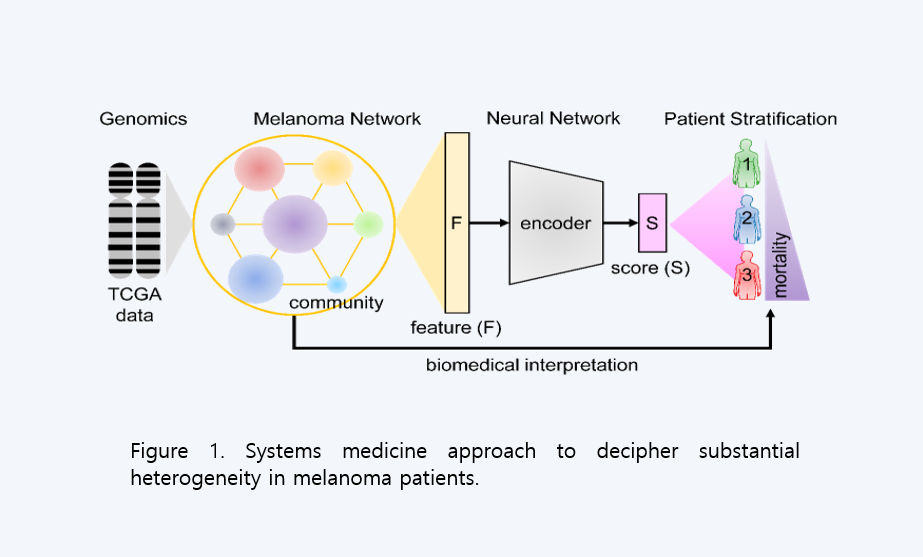Multiple types of genomic aberrations occur in cutaneous melanoma, and some can impact the prognosis of the disease. Hence, the integration of genomics data with clinical outcome could facilitate the identification of the most relevant genomic features for melanoma progression. The team of the skin clinic from the Universitätsklinikum Erlangen developed a systems medicine approach that integrates genomics data with a disease network and deep learning model for the prognostic classification of melanoma patients and assessed the impact of different genomic features (Figure 1). Specifically, the deep learning model utilizes clusters (“communities”) identified in the network to effectively reduce the dimensionality of genomics data into a patient score profile. Using this profile, they identified three disease subtypes that differ in survival time. Subsequently, they quantified and ranked the impact of genomic features on the patient score profile using a machine-learning technique. Follow-up analysis of the top-ranking features provided us with a biological interpretation at both pathway and molecular levels, such as their mutation and interactome profiles in melanoma and their involvement in signal transduction, immune response, and cell cycle pathways. Taken together, we demonstrate the power of network-based artificial intelligence to provide personalized prognostic assessment for melanoma patients. The generic nature of the approach suggests that it is applicable to other cancer types.
Lai X, Zhou JF, Wessely A, Heppt M, Maier A, Berking C, Vera J, Zhang L. A disease network-based deep learning approach for characterizing melanoma. International Journal of Cancer. 2022; 150(6): 1029- 1044. doi:10.1002/IJC.33860
Disease network-based artificial intelligence elucidates factors in melanoma prognosis

